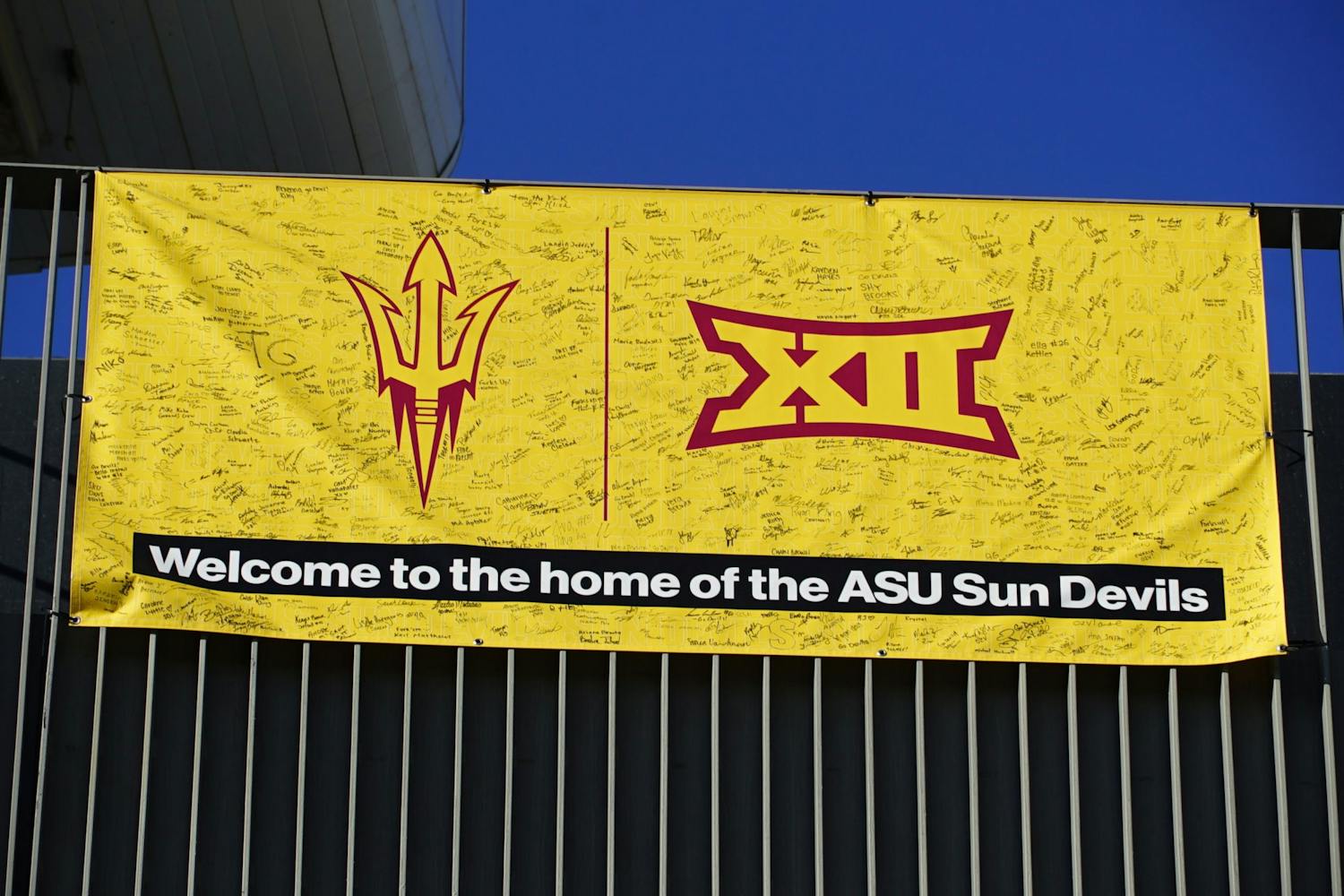Many athletes have setbacks or obstacles blocking their path to success. Fewer have overcome the adversity. Even less return better than before and become the best player in his or her respective league.
For ASU sophomore catcher Amber Freeman, it was a long road to where she is now, the Pac-12 Player of the Year, after being told she would never play softball again because of injuries.
“When I was 11, playing a tournament in Fresno, Calif., I remember stepping on first base wrong and complaining to my dad that my leg was bothering me,” Freeman wrote in her ESPNW blog. “We went to countless doctors, and no one could figure out what was wrong with me. Finally, after getting a sixth opinion, one figured it out. The top of my femur had slipped out of my hip socket. I had been playing that way for about a year.
“Apparently it was common in children, but the doctor made it clear I would never be able to play the game I loved again. I had surgery, and to this day, I have a 3-inch titanium screw in my left hip. The doctor’s words have stuck with me, but I have used that as motivation each and every day to get back on the field.”
Years after the surgery, Freeman excelled on the field instantly in high school. During her freshman year, she verbally committed to ASU over UCLA.
Freeman said she grew up rooting for the Bruins, her hometown team and one of the nation's premier softball programs. Freeman said she committed to ASU because she fell in love with the program and the campus.
In her sophomore season of high school, however, Freeman endured another setback. She tore her ACL and meniscus in her left knee.
“It was a freak accident,” Freeman wrote. “All I was doing was running the bases when I felt a huge pop in my left knee.”
The ACL tear is considered one of the most gruesome injuries in sports. Athletes vary in recovery times, and some are never the same after the injury.
“I called (ASU) coach (Clint Myers) and told him that I’d hurt myself,” Freeman said. “He’s like, ‘ACLs are very common injures.’ He wasn’t worried about it, and I still had three years before I got here.”
Freeman said the daily rehabilitation was difficult. It consumed part of her life.
“It was really tough for me,” Freeman said. “It’s only supposed to be six months, but it took me eight months to get back on the field. I was really nervous about re-hurting myself again. It took me a few extra months to be comfortable enough to be able to play.”
As a catcher, having to squat throughout a game puts additional pressure on the knees. Freeman said she still gets sore and added she wears a hidden knee brace to guard against future injury.
Freeman came back from the ACL injury better than she was before. In her junior and senior seasons at Mater Dei High School, she hit .481 with 19 home runs in 135 at-bats, according to maxpreps.com.
In her true freshman season at ASU, Freeman continued to hit, sporting a .349 batting average and 12 home runs. ASU finished third at the Women’s College World Series, and Freeman was named to Women’s College World Series All-Tournament team with a .500 batting average.
Freeman re-tore her meniscus in her left knee last fall, missing the latter part of fall ball. Freeman said the injury occurred near the end of the fall, and she had enough repetitions in the fall to prepare her for this year.
Now, the Sun Devils are vying for another national championship, and Freeman has blossomed into ASU's best hitter in her sophomore season.
After a 3-0 record in regional play, ASU advanced to Super Regionals, and the team will face No. 12 seed Kentucky for a berth in the Women’s College World Series.
On May 15, she was named the Pac-12 Player of the Year. Through Sunday, Freeman was hitting .382 with 18 homers and 61 RBI, and she hit home runs in each of ASU’s first two postseason games.
“I knew I was always capable of (being) Player of the Year, but I never thought it would be this soon, my sophomore year,” Freeman said.
To this day, Freeman uses the doctor’s words as motivation on the field.
“I would not have been able to get through all of this without the unconditional support and love from my family,” Freeman wrote. “Each day I feel blessed to be able to play the sport I love, because I will never forget when the doctor told me I would never play again.”
Reach the reporter at justin.janssen@asu.edu or follow him on Twitter @JJanssen11



